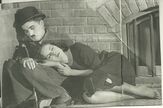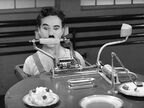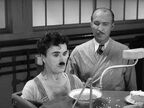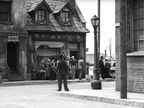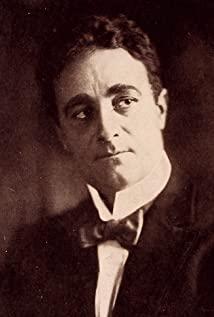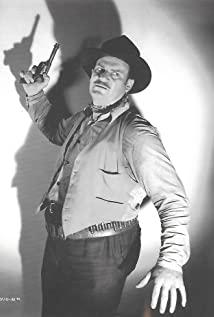"Modern Times" can be said to be Chaplin's masterpiece, as the phrase says, "This film tells about the conflict between individual enterprises and the pursuit of happiness in the industrial age". Even today, more than seventy years later, when I watched the film, I also had a lot of resonance.
The hero, Charlotte, is an assembly line worker in a large factory in the modern era. He repeats the same job nervously all day long. Even the enjoyment of going to the toilet to smoke a cigarette is taken away by the ruthless and selfish capitalists. In the end, Xia is overwhelmed. Erlo was insane and was sent to a mental hospital by the factory. At the same time, he also lost his job to survive. Soon, he was discharged from the hospital. But on the street, he was mistaken for the leader of the workers' riot by the police and imprisoned. In prison, he accidentally ingested heroin to cause excitement and committed crimes. A series of absurd plots happened to Charlo. In the end, he was released early. The warden said to him: "You are free." But Charlo said: "Can you keep me off for a few more days? It's good for me to stay here." Maybe only in that absurd age did Charlo have such absurd ideas.
Indeed, he is indeed inferior to prison outside. Although he has gained superficial freedom, he still lives in a larger cage in which the rich do what they want, and the proletarians are homeless. Later, Charlo met the heroine who was also a Wanderer. After a series of adventures, the heroine fell in love with Charlo. They found their own paradise-a small broken wooden house by the river. They have also imagined an ideal paradise, such as the life in a rich man’s villa, such as happy times in a big department store, but these are just illusions. The paradise that really belongs to them is also just a small house by the river. Wooden house. Here, I saw the warmth and happiness they never had before.
At the end of the film, Charlo and the beautiful heroine are on the way to escape again, but the title of this chapter is "Dawn". I think Chaplin hopes that they are walking on the road to dawn. Charlo sees the heroine frowning. He tells her that she should smile and smile towards dawn. This is what Chaplin brings to us. A glimmer of hope after hardship, sorrow, and absurdity.
I watched this film today, more than 70 years later, and I didn't feel the passage of time at all. Isn't it because the story in the film is happening every day with my side. Maybe there are many Charlottes around me, maybe I am Charlotte at all, who knows.
At this point, I think of a fragment at the beginning of the film. The first shot was a scene of many sheep squeezing out of the sheep pen, and then a shot of many workers walking out of the factory crowded after work. Seeing this, I thought of myself, at the subway station entrance every day when I commuted to work, I followed the scene of thousands of people coming in and out. I think the two shots at the beginning of the modern era have every reason to be the greatest and most classic montage in the history of film.
As Dickens said, this is the best time and this is the worst time.
View more about Modern Times reviews



